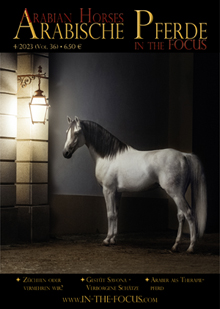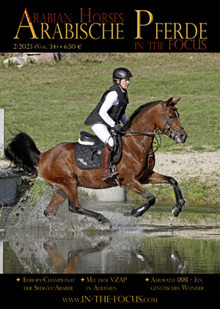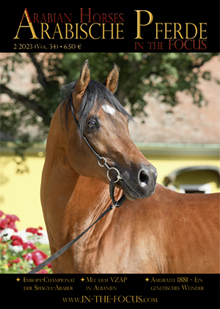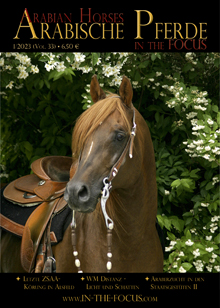Actually, you should read a report on the 13th ARABICA in Frankfurt in this place – but the show was cancelled due to a lack of entries. One may speculate about the reasons for that.

The number of Entries at shows are declining. There is much speculation about the underlying reasons.
In her Interview, Deirdre Hyde gives an excellent summary of the development of racing under the influence of the Middle East. The parallels to the show scene are evident and can be summarized as follows:
Stage 1: At the beginning there are breeders and owners, for whom the Arabian horse as such and the future, as well as the development of the breed are in the center of interest. Shows are an integral part of the selection process.
Stage 2: The “Sheikhs” in the Middle East have re-discovered the Arabian horse, and with it also adopt the idea of shows; they start to like it and invest a lot of money in horses and infrastructure. This was celebrated in Europe as success!
Stage 3: Financially strong, performance-oriented newcomers start to become interested in the glamour around the Arabian horse, but they are only interested in victories. To secure such victory, they buy the best horses from all around the world, even whole breeding programs. This is celebrated by those breeders in Europe and overseas, who are selling their horses for horrendous sums.
Stage 4: The show scene in the Middle East becomes too small for the Sheikhs, they are exhibiting more and more in Europe, too. To sweeten this fact, they “sponsor” the European show scene generously.
Stage 5: Now, the amateur breeder has to compete with the best horses, bought together all over the world. He loses out quickly, and turns his back to the show scene. Apart from that, the bloodlines are narrowing down to those horses that can actually compete successfully in such competition. But breeding taxes for these show horses sires are high, and the amateur breeder cannot even afford to use them.
Stage 6: Without the horses of the amateur breeders, there are not enough participants to fill the classes; but classes with 1-2 horses are no true competition. The value of a class win or championships is decreasing, and leads to even less participants. Shows are being cancelled due to a lack of participants.
Stage 7: The amateur breeder, formerly the backbone of the breed, does not breed anymore, because there is no use or buyers for his horses, that are not competitive at shows anymore.
Stage 8: The Sheikhs are among themselves – at shows in the Middle East as well as in Europe.
I leave it up to the reader, to decide in which stage our show scene is at present. And of course, the breed as a whole is not entirely based or depending on the show scene. But one thing is certain for me: We need a “rescue program” for those breeders, who do not breed highly specialized show or race horses, but – just like in the old days – an all-around Arabian. We need activities for these horses, so that buyers see a field of use for their new family member.
Ideas and visionas are needed!












